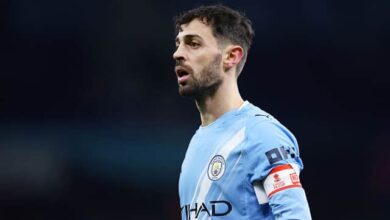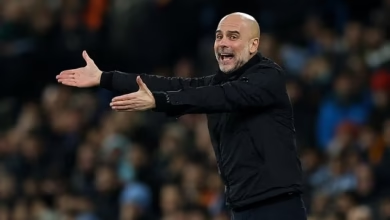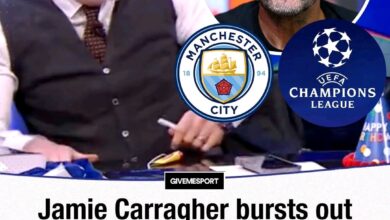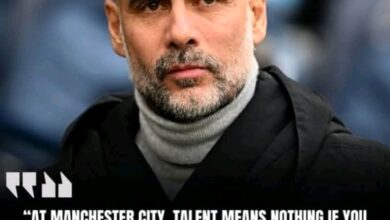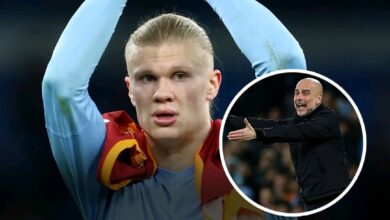Man City cult hero keeper Carson retires at 40

It was the end of an era, the quiet closing of a remarkable football journey. Scott Carson, the man who spent over two decades guarding goalposts across England and Europe, officially announced his retirement at the age of 40. After twenty-one years in the professional game, countless training sessions, unforgettable nights, and a collection of medals many players can only dream of, Carson finally decided to hang up his gloves for good. For most football fans, he wasn’t a regular headline name, but among those who truly understood the spirit of the sport, he was something more — a symbol of professionalism, loyalty, and love for the game.
His retirement, announced through a heartfelt Instagram post, marked the end of a story that began in Leeds back in 2004. “After an incredible journey between the posts, it’s time to hang up the gloves,” Carson wrote. “Football has given me everything — memories, friendships, and moments I’ll never forget. Thank you to every team-mate, coach, fan, and club that’s been part of my ride. It’s been an honour.” Those simple words summed up a career that spanned ten clubs, four England caps, and experiences that took him from the chaos of relegation battles to the glory of lifting the Champions League trophy.
Scott Carson’s story was never about fame or constant spotlight. He was never the superstar goalkeeper who dominated headlines like Alisson Becker, Manuel Neuer, or Gianluigi Buffon. Instead, he was the man who quietly did his job wherever he went, who always showed up, worked hard, and gave his all — whether it was at Leeds United, Derby County, West Bromwich Albion, or Manchester City. And that humility, that quiet dedication, is exactly what made him a cult hero in the blue half of Manchester.
Carson’s journey began at Leeds United, the club that gave him his first professional chance in 2004. He was just a teenager then, but his talent was obvious. Big clubs were already watching, and before long, Liverpool came calling. It was at Anfield where Carson got his first taste of real success. He may not have been the main goalkeeper during Liverpool’s 2005 Champions League triumph under Rafa Benítez, but he was part of that unforgettable squad — the one that came back from 3-0 down in Istanbul to beat AC Milan and claim one of football’s greatest victories. For a young goalkeeper still finding his way in the game, it was a priceless experience.
He was also part of Liverpool’s FA Cup and Super Cup-winning squads, learning from the likes of Jerzy Dudek and Pepe Reina, goalkeepers who had already etched their names into Liverpool history. But Carson wasn’t content to sit on the bench forever. He wanted to play, to feel the pressure of matchdays and the rush of saving shots that mattered. That desire led him on a journey across several clubs — Charlton, Aston Villa, Sheffield Wednesday, and eventually Derby County and West Brom, where he would enjoy some of his best football.
At Derby and West Brom, Carson became a leader. He made over 100 appearances for each club, a sign of consistency and trust. He was vocal, commanding, and reliable — the kind of goalkeeper managers love to have. For Derby fans, he was more than just a shot-stopper; he was part of the club’s heartbeat during some difficult years in the Championship. When he finally left, he did so with respect and admiration from the fans who knew how much he had given.
But fate had one more chapter for him — one that would take him to the top of the football world once again. In 2019, Manchester City manager Pep Guardiola decided to bring Carson in, initially on loan from Derby County. To many, it seemed like a strange signing. Why would one of the best teams in Europe sign a 34-year-old goalkeeper who was unlikely to play? But Guardiola saw something more. He saw experience, leadership, and professionalism — qualities that could help guide City’s younger goalkeepers and support the team’s dressing room unity.
Carson may have played only 117 minutes of competitive football during his six years at Manchester City, but his presence was far greater than his playing time. Within the squad, he became a mentor to Ederson and Stefan Ortega, always ready with advice, encouragement, or even a joke to lighten the mood. City players affectionately called him “the old man,” but they also respected him deeply.
When City won the Treble in 2023 — the Premier League, FA Cup, and Champions League — Carson’s joy was no less than that of Erling Haaland or Kevin De Bruyne. Though he spent most of the season as a third-choice keeper, he was as much a part of that journey as anyone else. His experience helped maintain the calm during intense moments, his professionalism set the standard in training, and his positive energy helped keep the squad together. After the final whistle in Istanbul, when City lifted the Champions League trophy to complete their historic treble, Carson was seen touching the cup with tears in his eyes. It was poetic — the boy who was part of Liverpool’s Champions League triumph in 2005 now celebrating another in 2023, this time with Manchester City, 18 years later.
He may have played just two matches in six years for City, but his legacy at the club will never be measured in appearances. Fans loved him for his humility and humour. He became something of a cult figure — the quiet veteran who never complained, never demanded attention, but always gave his best behind the scenes. In a team filled with global stars, Carson stood out precisely because he wasn’t one. He represented the human side of football, the reminder that not every hero scores goals or makes dramatic saves under floodlights. Some heroes simply show up, every single day, to make others better.
When the news of his retirement broke, tributes poured in. Manchester City defender Manuel Akanji, now on loan at Inter Milan, called Carson an “absolute legend.” Former City captain Fernandinho, who shared the dressing room with him for several years, simply wrote, “The Goat.” Erling Haaland also sent his message: “Miss you, pal. All the best.” It wasn’t just about football — it was about friendship and respect. That’s the kind of impact Scott Carson had.
Even his former club Derby County joined in the tributes, posting: “Wishing all the best to Scott Carson. Congratulations on a magnificent career, Scott.” Those words reflected the affection and respect he earned everywhere he went.
Looking back on Carson’s career is like looking at a map of English football across two decades. He’s seen it all — the dizzying heights of Champions League nights and the gritty battles of the Championship. He’s played alongside some of the greatest players of his generation and under some of football’s most brilliant managers. From Rafa Benítez to Pep Guardiola, from the roaring crowd at Anfield to the shimmering lights of the Etihad, Carson’s journey has been one of perseverance and purpose.
His international career, though short, was another proud chapter. He earned four caps for England and was part of several squads during the mid-2000s. While he is often remembered for a costly mistake in a Euro 2008 qualifier against Croatia, Carson never allowed that moment to define him. He carried on, rebuilt his confidence, and continued his career with determination. It takes resilience to recover from such public disappointment, and Carson showed plenty of it.
As the years went by, Carson embraced his role as a mentor more than a competitor. At City, he was instrumental in guiding the younger goalkeepers through the demands of playing for a team expected to win everything. Pep Guardiola frequently praised him privately for his attitude and leadership. Within the walls of City’s training ground, Carson was trusted and loved — a reminder that football teams are built not just on talent, but on spirit and togetherness.
In many ways, his story mirrors that of the unsung heroes in every workplace, every team, every dressing room — the people who might not get the spotlight but without whom success would be incomplete. When City paraded their Treble trophies in 2023, Carson’s smile was wide, his hands proudly on the cup, and his teammates’ cheers were genuine. They knew what he had given them.
Now, as he steps away from the game, Scott Carson leaves behind a legacy that goes beyond statistics. He retires with four Premier League titles, a Champions League medal, FA Cup medals, and countless memories. But more than the medals, he leaves behind respect — something money can’t buy.
He once said that football is about moments, not minutes. And in his case, that couldn’t be more true. His last competitive appearance came in March 2022 when he came on as a late substitute in a Champions League tie against Sporting. The Etihad crowd rose to its feet that night — not because of what he was about to do, but because of what he had already done for years behind the scenes.
Now, as he closes the final chapter of his playing career, there’s a sense of gratitude across English football. Gratitude for a player who gave the game everything. Gratitude for a man who showed that even in a sport obsessed with fame and numbers, there’s still space for loyalty, humility, and heart.
Scott Carson may never have been a superstar, but to those who shared a pitch, a dressing room, or a dream with him, he’ll always be remembered as something even greater — a true professional and a quiet legend.
And somewhere in Manchester, in the corner of a training ground where laughter once echoed between shots and saves, his presence will still be felt. Because players like Scott Carson don’t just retire — their influence stays long after the gloves are hung






